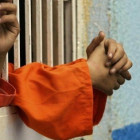
Obama Announces Plans to Reduce Gun Violence
|
President Barack Obama announced his support for a range of gun control policies this afternoon that addressed not only the threat of mass shootings but also the recurring gun-related violence that takes dozens of lives in the country every day. After his speech, he signed multiple executive measures ordering some immediate changes, while four children who had written to urge him to take action against gun violence stood behind him. “This is our first task as a society: keeping our children safe. This is how we will be judged,” Obama told an audience that included parents of children killed by a gunman last month at an elementary school in Connecticut. “We can’t put this off any longer.”
The president backed universal background checks for all gun purchases, including those sold privately and at gun shows, a ban on the sale of assault weapons and high-capacity ammunition magazines, increased hiring in law enforcement, and initiatives on mental health and school safety.







